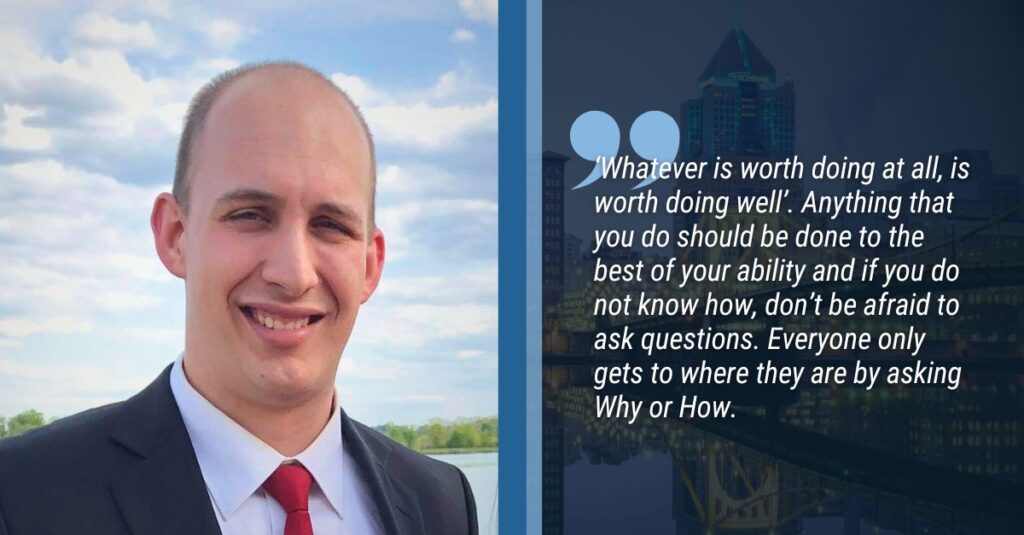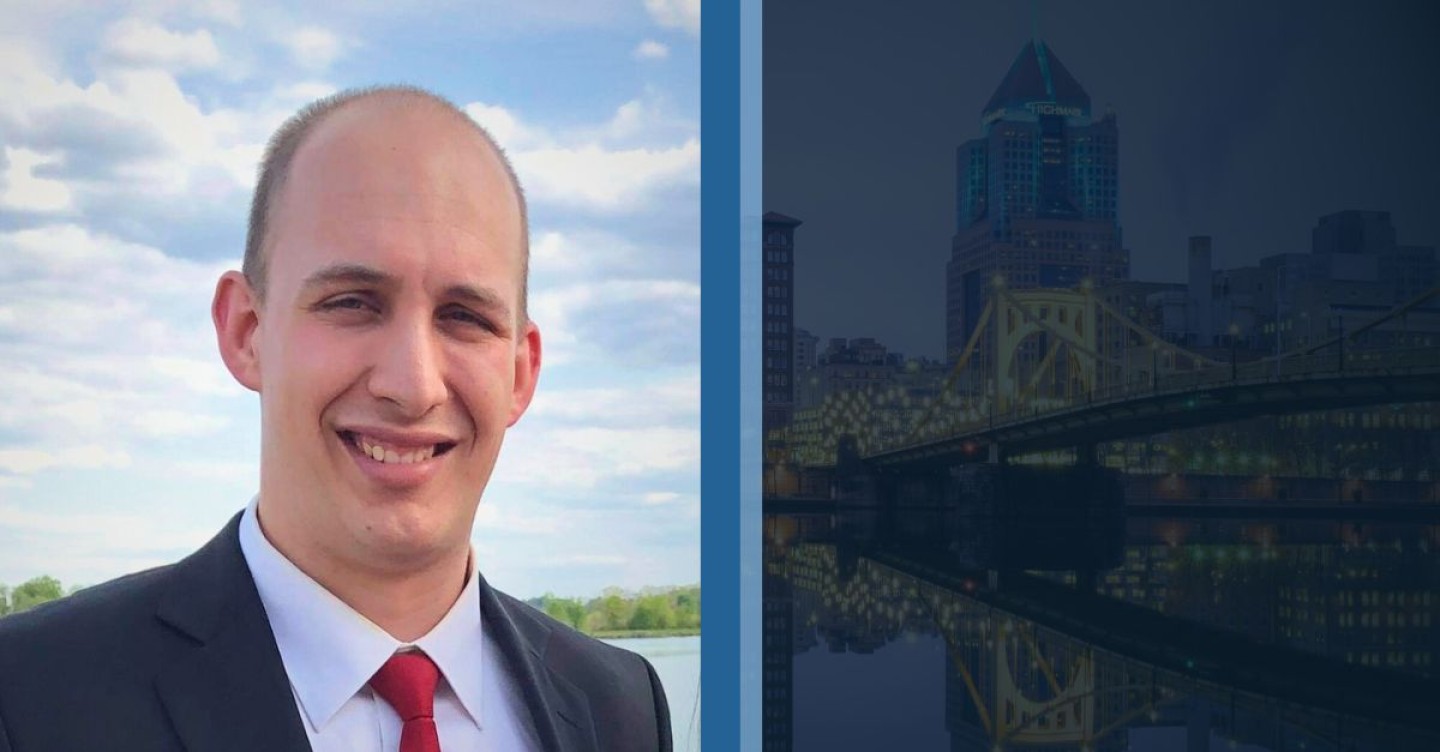
In the world of engineering, the blend of technical expertise and leadership is a coveted combination. We were fortunate enough to have the opportunity to delve into this unique intersection through the experience of our newest Civil/Structural Department Manager, Joseph Caudle, PE. With his impressive achievements in the engineering field and an active role in the Army Reserve, Joseph brings a wealth of knowledge and a distinctive perspective that seamlessly integrates military discipline with engineering innovation.
Get to know Joseph Caudle
Joseph Caudle's journey into the realm of engineering was sparked by two major influences: NASA's space exploration and the engineering marvels of the Roman Empire. "What inspired me to pursue a career in engineering was NASA with space exploration along with the Roman Empire’s feats of engineering," Joseph shares. His initial aspiration was to become an astrophysicist, driven by a desire to explore the unknown reaches of space. However, reduced government spending and job cuts in that field led him to pivot towards structural engineering, where he could channel his fascination with ancient Roman constructions like aqueducts and the Colosseum, into a fulfilling career.
Joseph's career path eventually led him to join RTP, where his dedication and expertise earned him a promotion to Manager of the Civil/Structural Department earlier this year.
The Journey to Becoming a Department Manager
The path to leadership in any field is seldom straightforward. For Joseph, the skills and discipline honed in the military played a crucial role in shaping his professional trajectory. "There are quite a few things I have learned and can apply from serving in the National Guard. Most importantly is being a leader and not just a manager," Joseph explains.
His military service instilled in him the importance of teamwork and the ethos of servant leadership. "There is no ‘I’ in team and an excellent result is due to the team, not just an individual. The team members must be empowered and feel their individual position is just as important as the next because every position supports each other," he notes, as this philosophy has been instrumental in his role as a department manager.
Insights into the Intersection Between Military Service and Professional Career
Joseph's dual careers in the military and engineering are not mutually exclusive but rather symbiotic. The leadership principles and problem-solving skills he developed in the Army Reserve translate seamlessly into his work as an engineer and manager. "While my role is the department manager, I strive to be a leader and not just a manager, mentoring and guiding the team members to their full potential," Joseph emphasizes.
The discipline and strategic thinking required in the military have equipped him with the ability to manage complex engineering projects and lead his team effectively. His approach underscores the value of diverse experiences and how they can be leveraged to drive professional success.
Advice and Perspectives for Aspiring Engineers and Military Community
For aspiring engineers and members of the military community looking to balance dual careers, Joseph offers valuable advice: "Whatever is worth doing at all, is worth doing well. Anything that you do should be done to the best of your ability and if you do not know how, don’t be afraid to ask questions. Everyone only gets to where they are by asking Why or How."
He also highlights the crucial difference between leadership and management. "For those looking to obtain a leadership position, the best advice is the key word 'Leader.' There is a big difference between a leader and a manager, and that difference is the most important to learn. Take care of your people and they will take care of you."
Joseph's insights are not just theoretical but rooted in his lived experiences, making them particularly resonant for those navigating similar paths.
The Value of Diverse Experiences
Joseph Caudle's journey emphasizes the importance of diverse experiences and the unique value individuals bring when they integrate different aspects of their lives into their professional roles. His story is an inspiring reminder that the skills and lessons learned in one sphere can significantly enrich and enhance performance in another.
At RTP, we are proud to have leaders like Joseph who embody the principles of dedication, innovation, and leadership. His contributions continue to drive our commitment to delivering exceptional engineering solutions while fostering a collaborative and empowering work environment for all.
For those looking to embark on a similar journey, remember that every experience, whether in the military, academia, or early career roles, has the potential to shape you into a well-rounded and effective leader. Embrace these opportunities, seek knowledge relentlessly, and always strive to do your best.


